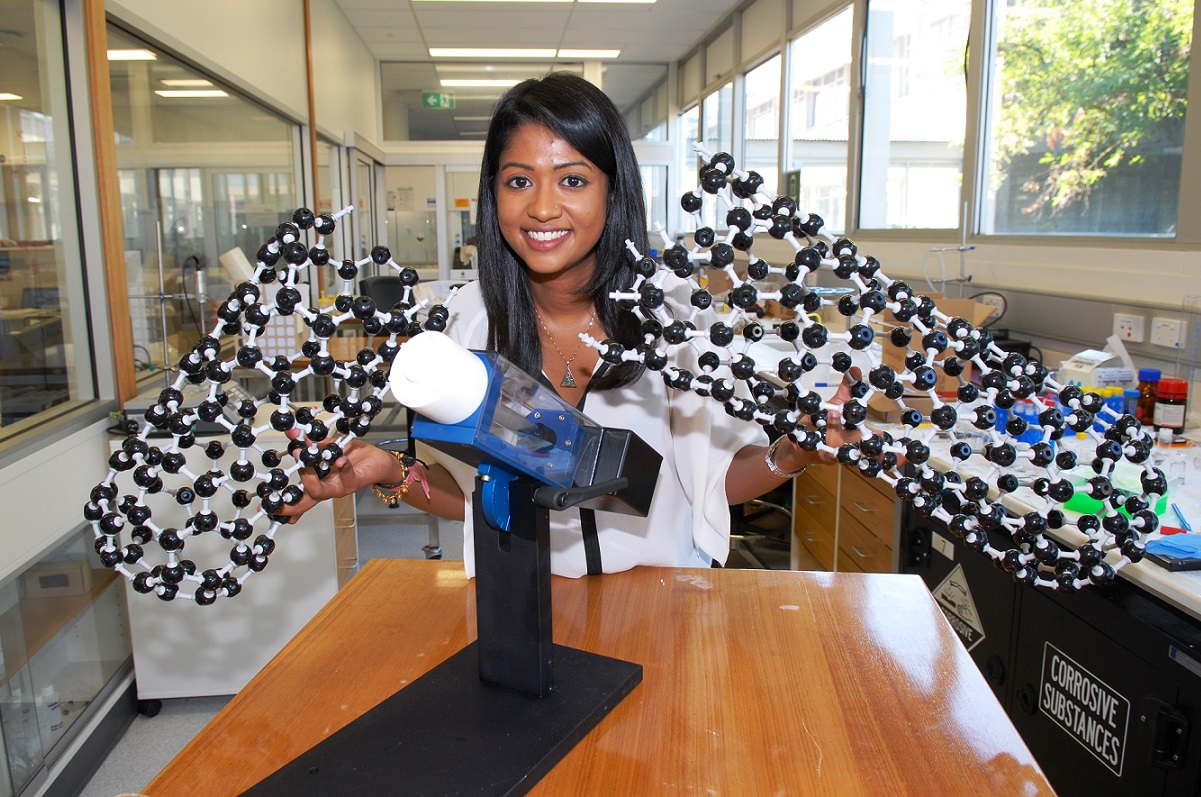
The vortex fluidic device, developed at Flinders University by Professor Colin Raston and colleagues, is bringing clean tech processing to the graphite industry via a collaboration with an Australian Stock Exchange-listed company First Graphene.
The venture led to the launch of 2D Fluidics Pty Ltd, 50% each owned by First Graphene Ltd and Flinders University’s Institute for Nanoscale Science and Technology, to commercialise the VFD technology.
2D Fluidics uses the device and related processing capabilities to prepare graphene oxide as well as carbon nanotube materials for commercial sale and supply to the plastic industry and electronics industry for applications such circuits, supercapacitors and batteries.
Now, building on a growing R&D ties with Flinders Uni, the Perth-based company has announced a significant investment in the UK and European market, including as a Tier 1 partner in the Graphene Engineering and Innovation Centre in Manchester.
Research associate Dr Kasturi Vimalanathan, from the Flinders College of Science and Engineering, is currently back in the UK working with University of Manchester researchers at the new $A100+ million GEIC at Manchester, England.
She says “it’s been such an amazing experience working along side the First Graphene team here in Manchester.
“During my second stint here at the GEIC, we’ve been working on scaling up the process of fabricating graphene oxide at scale,” she says.
“The process we are developing will be a game-changer resulting in material that is applicable in diverse applications.
“The key objective of this collaboration is addressing environmental and economical sustainability at the inception of the science.”
Opened by the Duke of York last year, Manchester University’s government-funded GEIC is an industry-led facility specialising in the rapid development and scale-up of graphene and other 2D materials applications.
The GEIC will focus on six application areas to rapidly accelerate the development and commercialisation of new graphene technologies.
- Composites
- Energy
- Membranes
- Inks, Formulations and Coatings
- Graphene production
- Measurements and characterisation

